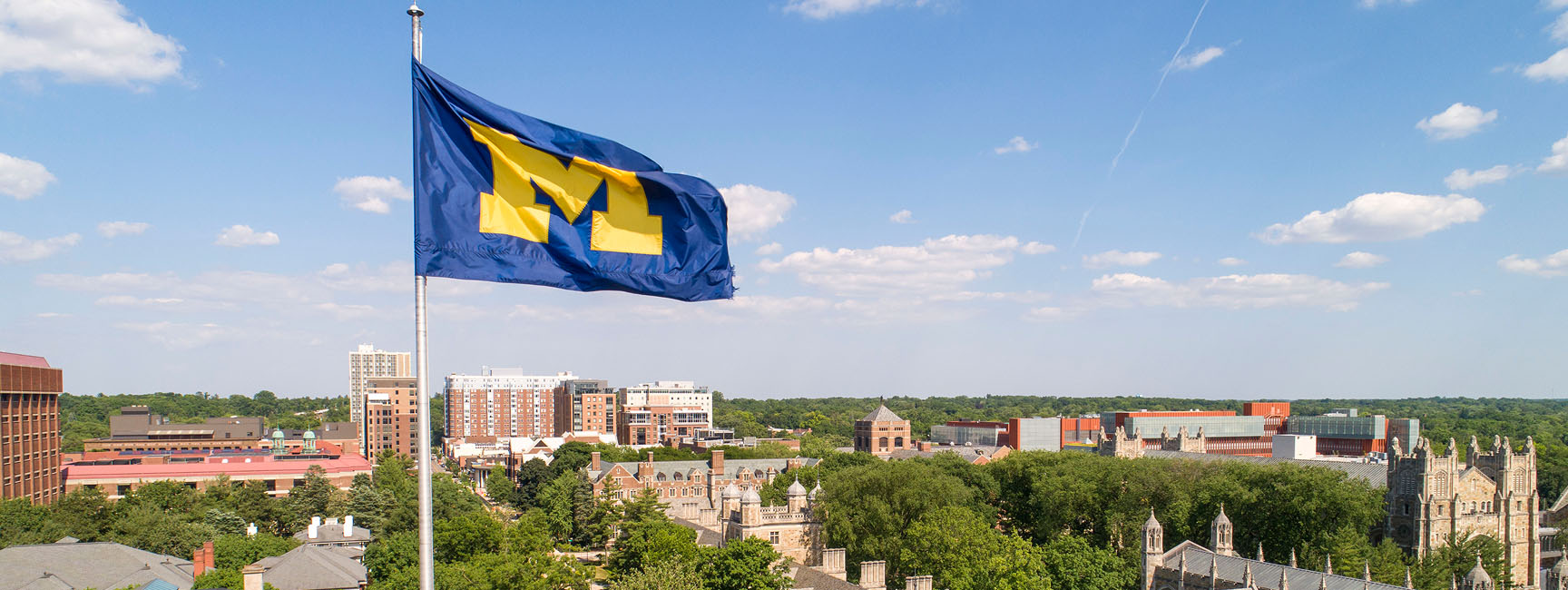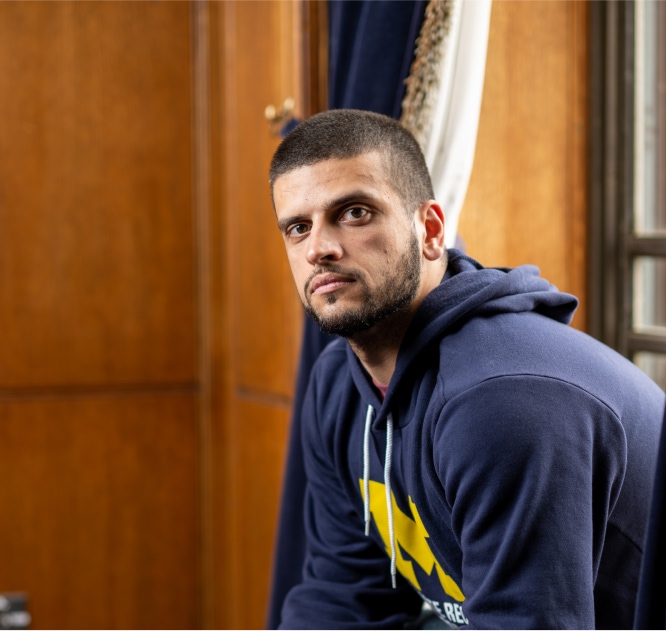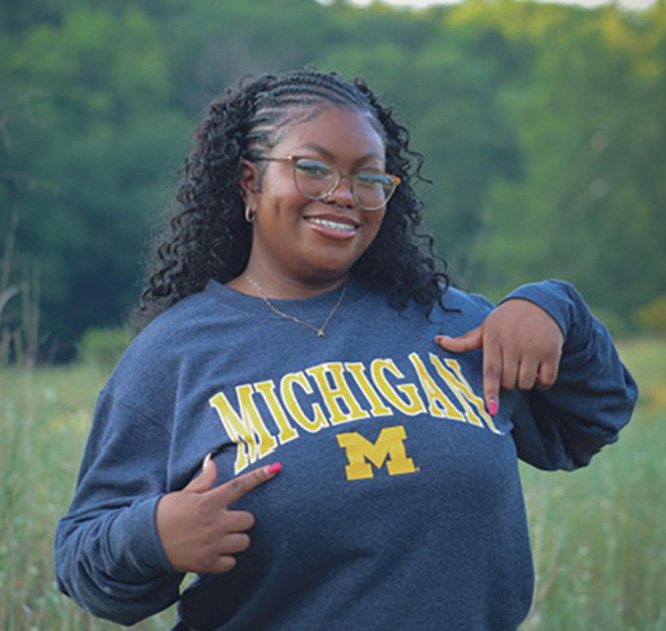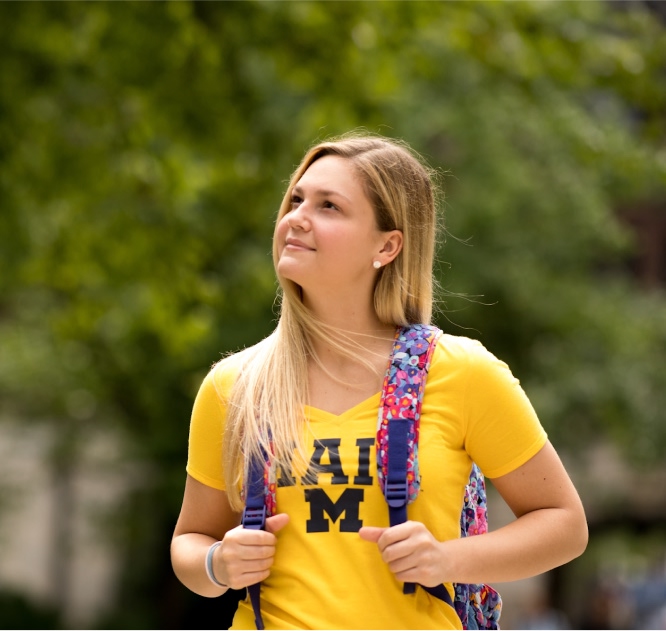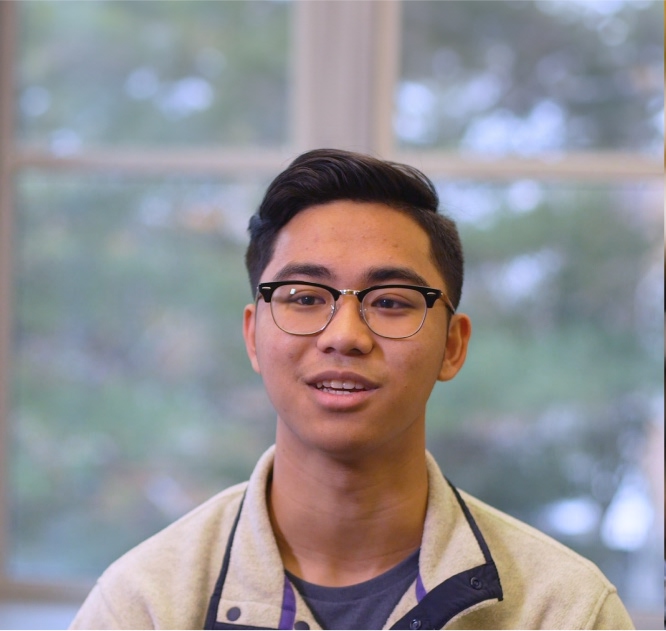
Discovering Grand Possibility
Andrew Kertawidjaja
UM-Ann Arbor Alum
Andrew Kertawidjaja (Michigan Ross ‘22, LSA ‘22) was born and raised in Berrien Springs, a small, rural town of 1,800 residents, located in the southwestern corner of Michigan. “Most of my high school classmates, who came from low socioeconomic backgrounds like myself, didn’t really think college was a viable option from a financial perspective. I honestly thought it was unattainable for me as well,” says Kertawidjaja. “I would say that one-third of the students in my graduating class went to trade school, one-third started in the workforce, and one-third went on to college. Out of that third that went to college, I would guess that most didn't end up at top 20 schools.”
Creating a New Path
Kertawidjaja’s parents immigrated to the United States from Indonesia in 1998. “The financial crisis was strong in Southeast Asia, and specifically in Indonesia. There was geopolitical unrest and people were being laid off,” he says. “My parents saw this as an opportune moment to come to the U.S. and make a new life for themselves. They arrived on tourist visas and settled in New Jersey. After a year or two, we moved to Michigan because my parents had an opportunity to help out with a family member’s home care business, where they still work.”
Early Aspirations
Kertawidjaja says he’s always had a fascination with the world of business. “My college application essay was about Andrew Carnegie, an industrialist and philanthropist, who happens to share the same name as me,” he says. “One thing I really appreciate about Carnegie was that, in addition to being a businessman, he was also a philanthropist, donating large sums of money to education and the arts. I was inspired by this. And it started me on a path to find college programs that had ‘positive business’ within their curriculum, and to begin to look at business from that lens.”
Focus of Study
It was that early interest in business that led Kertawidjaja to the University of Michigan, where he earned a BA in psychology from the College of Literature, Science, and the Arts, and a BBA in finance from Michigan Ross. “The finance and accounting coursework is extremely strong at Michigan Ross,” says Kertawidjaja. “It’s taught by renowned professors who have actually worked in the industry. That's just one of the unique advantages of Michigan Ross — whether you're interested in marketing, finance, or accounting, the professors truly know what concepts are important to teach in terms of application.”
Embracing Support
A first-generation student, Kertawidjaja says it’s unlikely he would have accomplished what he has academically without the Go Blue Guarantee, which he learned about soon after he applied to U-M and was accepted. “With the Go Blue Guarantee I was able to go to college stress-free and without enormous future debt,” he says. “The Go Blue Guarantee is the perfect way for a public flagship institution like the University of Michigan to invest in students from Michigan. The best thing about the Go Blue Guarantee is that it allows for possibility at a grand level. I truly believe it is one of the programs that is catalyzing social mobility in America. My family came to the U.S. to find a better life. The Go Blue Guarantee is a symbol for the idea of a better life, a brighter future, and the opportunity to grow.”
Beginning his Career
Kertawidjaja is now working as an investment banking analyst on the capital markets team at Royal Bank of Canada in New York City. “I help companies go public on the New York Stock Exchange. I help them issue stock if they're trying to finance their company or business. I also help them have access to institutional investors if they're looking to sell some part of their business,” says Kertiwidjaja. “My day-to-day life is very dynamic because we interface with the stock market each day. It can get really hectic at times but it can also be really exciting.”
Building Community
Kertawidjaja participated in Ross Summer Connection (RSC), an academic learning community geared toward high-potential, first-year Michigan Ross BBA students who want a preview of the content and rigor of first-year requirements. RSC also prepares participants for the transition from high school to college, helps them form a community of peers, and provides career preparation.
He was also part of First-Generation College Students @UM, a student organization with the mission to increase accessibility to resources for first-generation students and to build community among the population. “The most important thing is to always seek community, whether that’s through your ethnic background or through a first-generation organization,” he says. “I truly believe that first-generation students are trailblazers. They're typically the first person in their family to lift out of an unfortunate socioeconomic background. First-generation students know why they’re going to college.”
Kertawidjaja says he’s grateful for the strong friendships and the invaluable connections he formed while at U-M. “The University of Michigan is a global community. There are times when I’m walking down the street in Manhattan and I see someone I shared a class with, or someone from my Michigan Ross Investment Club. It’s kind of crazy.”
Next Steps
Kertiwidjaja would eventually like to become an investor, helping others make strategic decisions with their money. “It’s a huge role because you’re the steward of someone else's life savings,” he says. “I’ve also dreamed of working in some type of social entrepreneurship role, creating a ‘positive business’ model and using revenue to donate to charity. I'd also love to join a startup, something that's disrupting traditional industries. Business is the most powerful catalyst for positive societal change in the world. It's what moves the fastest.”
Insights Gained
Kertiwidjaja says it wasn’t always easy being part of an immigrant family and coming from a low socioeconomic background. “What I learned from my experience at the University of Michigan is that I'm much stronger than I thought. I was intimated about coming to a world-class university like U-M, because there were so many kids who had gone to preparatory boarding schools on the East Coast. But now I can tell others in a similar position that you will discover how strong you are and come out a better person at the end of the tunnel, by the time you toss that tassel up in the air.”
